Automotive Applications

Head-Lights
SUGOI Polymers offers a complete portfolio of thermoplastics materials for the automotive industry. We’ve successfully help automotive manufactures reduce vehicle weight, lower vehicle emissions, and increase safety.
SUGOI Polymers’s Light-Weighting Portfolio
SUGOI Polymers has successfully helped manufacturers reduce weight in automotive applications, including shifter bases, arm rests, sunroofs, pedal housings, front end modules, door modules, and more!
SUGOI Polymer’s light-weighting portfolio includes:
- Very Long Fiber compounds
- Carbon Fiber compounds
- Chemical Foaming Agents
- Hollow Glass Microspheres
Agriculture & Horticulture
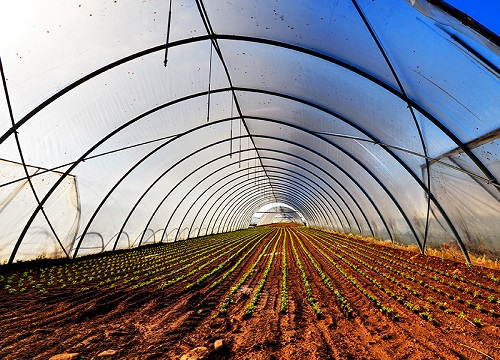
Agriculture Plastics
About 2.5% of all plastics produced in Europe (40 millions tons per year) are used in agriculture. They are employed for greenhouses or small tunnels to protect plants from atmospheric agents and to keep the ideal temperature for growth.
A wider use of plastics in agriculture can reduce the losses in harvesting, and increase the value of output by Rs 68,000 crore, according to a report.
Plasticulture refers to use of plastics in agriculture in a scientific manner which not only improves the productivity but also optimises the input resources.
The report also suggests that the innovative plastic packaging and handling techniques can promote proper harvest management which will in turn contribute towards agriculture GDP.
Proper application of micro-irrigation technologies can result in water saving by up to 50-70 per cent and can help increase productivity by 30-100 per cent, the report added.
Plastics in Construction
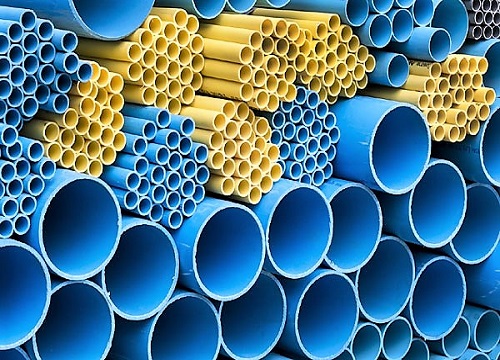
Plastic in Construction
Use of Plastics in Different Aspects of the Construction Industry
Flooring – Plastic materials like polyvinyl chloride (PVC) and polyethylene are used to make flooring less prone to wear and tear. It also decreases the sound pollution level and can be cleaned easily.
Roofing – To protect the outer surface of the roof from damage, two layers of different plastic materials are required. The upper part is made of colored thermoplastic olefin or vinyl while the lower part consists of polyurethane foam which consumes less energy and keeps the interior of a house cooler.
Insulation – Polyurethane spray is frequently used for insulation when constructing green or low energy buildings. Rigid polyurethane foam is known for its high thermal resistance which promotes temperature consistency. Polyurethane foam is also popular because it is lightweight, chemical resistant, and flame retardant. Due to its closed cell nature, polyurethane insulation performs as an air barrier, resulting in significant energy savings.
Wall – A structural insulated panel (SIP) is a sandwich of expanded polystyrene amidst two slim layers of oriented strand board. This type of pre-fab, composite wall board can be transferred to the work place easily for a particular task and provide good support to columns and other associated essentials during renovation.
Pipes – Commonly made up of polyvinyl chloride (PVC), CPVC, acrylonitrile butadiene styrene (ABS) or polyethylene, plastic pipes are flexible and very light in weight, making them easy to install. All of these plastic materials are also highly chemical and water resistant, making them suitable for many extreme environments.
Practicality of injection molded plastic components
Defence Production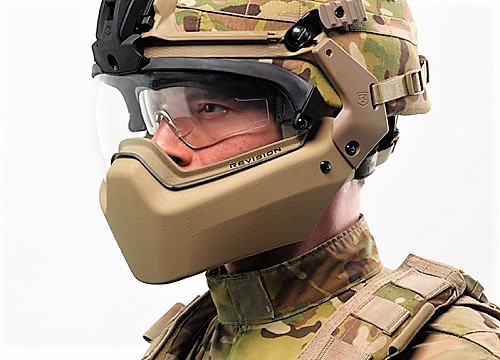
Plus, plastic injection mold tooling is extremely robust and has a much longer life than the die-cast molds used to produce metal parts — a substantial cost savings.
Evaluating these general benefits against specific requirements critical to military/defense applications further demonstrates the practicality of injection molded plastic components:
PORTABILITY
Smaller, lighter devices make it easier for military and public safety personnel to transport, store, access and use equipment under routine and challenging conditions.
Overmolding of soft-touch grips also make operation less
complicated for gloved hands and offer better grasp control in dirty, smoky, oily or otherwise compromised environments.
DURABILITY
There are unique factors in the field to which devices and equipment are exposed and must endure: concussive events, extreme temperatures, frequent drops, dirt, excessive moisture, fires and hazardous chemicals.
Unlike metal that will corrode, dent and potentially malfunction, injection molded plastic components are specifically designed to survive impact, shock and vibration while simultaneously withstanding corrosive environments.
This becomes even more important when equipment like GPS units, other in-field communication technologies or soldiersaving medical equipment contain electronics that must be protected by a plastic housing.
Engineered Thermoplastics for Electrical & Electronics
In the ever-changing electronics market, designers need development partners to address new design challenges as they arise. The SUGOI Polymers can be that design partner.
With our tieup with thermoplastics compounders world over, SUGOI Enterprises tap into a variety of polymer and filler technologies to solve evolving design challenges.
Specialty compounds from SUGOI Polymers can be used to both maximize production yields and enhance product performance.
Enhanced Product Performance
SUGOI Polymers specialty compounds address the increasing demands of the electrical and electronics market as products become smaller, more portable and lighter weight.
Whether this means replacing metal shielding boxes with a molded EMI compound or replacing a bulky, metal heat sink with a molded thermally conductive compound, SUGOI Polymers has the experience to deliver the required performance at the right price.
SUGOI Polymers has a full line of specialty compounds to meet electronic applications. SUGOI Polymers associates utilize.
Energy

Computer-Aided Engineering (CAE) Support Services
The global demand for energy increases every year. Currently, fossil fuels are burned to meet a majority of the world’s energy requirements. However, future energy requirements will rapidly start being met through renewable energy sources, such and wind and solar.
Engineered thermoplastic compounds from SUGOI Enterprises address the energy markets’ need for better reliability, improved performance, and increased design flexibility. Utilizing over 60 engineering resins,
SUGOI Enterprises provides customized material solutions that meet end-use requirements; including solutions for high temperature structural products for the oil and gas industry, a selection of wear resistant products for the chemical process industry, and alternative material solutions for the solar and wind industry.
Safe and Effective Medical Devices
Drug delivery devices, surgical tools, in-vitro diagnostics, orthopedics and other healthcare segments benefit immensely from the use of proven medical grade plastic compounds that help create safe and effective medical devices.
Material Selection
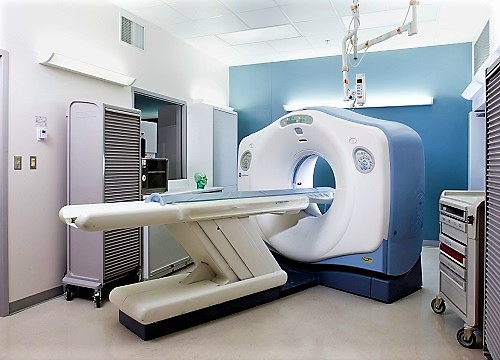
Medical Plastics
SUGOI Enterprises works with virtually all the medical grade resins available on the market and can speed your product development process by helping you arrive at the correct material choice that meets your cost, performance and regulatory goals.
SUGOI Enterprises does this through maintaining a known biocompatible database that tracks the regulatory performance of resins, additives and colorants.
Change Management
Change management is critical in maintaining the integrity of your device testing. You will be provided with ultimate control over your formulation with SUGOI Enterprises’s “no material substitution” and customer notification policy. Over the years, SUGOI Enterprises’s purchasing department has also identified a supplier base that is committed to supplying the medical market.
Industrial Equipment
SUGOI Enterprises has extensive resources for use by industrial product manufacturers to rapidly develop reliable, innovative, and cost effective products that will separate your products from the competition and provide access to markets with demanding requirements.
Our high performance compounds are used in a wide range of industrial products including:
- Fluid Handling
- Heavy Equipment
- Material Handling
- HVAC
- LED Lighting
- Tools and Equipment
Packaging Industry
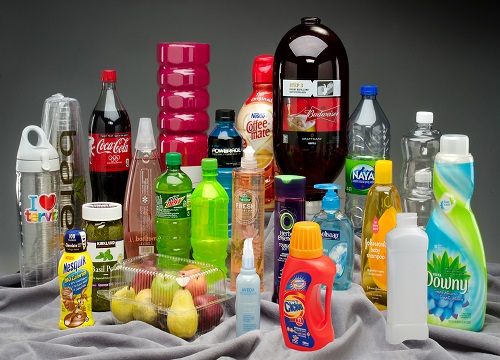
Plastic for Packaging
The commercial success of plastics as a packaging product is due to a combination of flexibility (from film to rigid applications), strength, lightness, stability, impermeability and ease of sterilisation.
Plastics offer a cleaner, tougher, and more appealing form of packaging, especially for the food and beverage industry, thereby generating a quick rate of growth in demand worldwide.
There is a heavy demand for a lot of products to be made available in plastic bags, pouches, and sachets, as well as the more conventional rigid packaging methods.
The physical advantages that plastics provide in terms of strength and durability cannot currently be equaled by any other material for the same price.These features make plastics an ideal packaging material for all sorts of commercial and industrial users.
According to a recent report, global demand for plastic packaging was valued at $270 billion in 2014, and is expected to reach $375 billion in 2020, growing at a CAGR of 4.8% between 2015 and 2020. In terms of volume, the global plastics packaging market stood at 81,750.0 kilo tons in 2014.
Railways moving towards Plastics
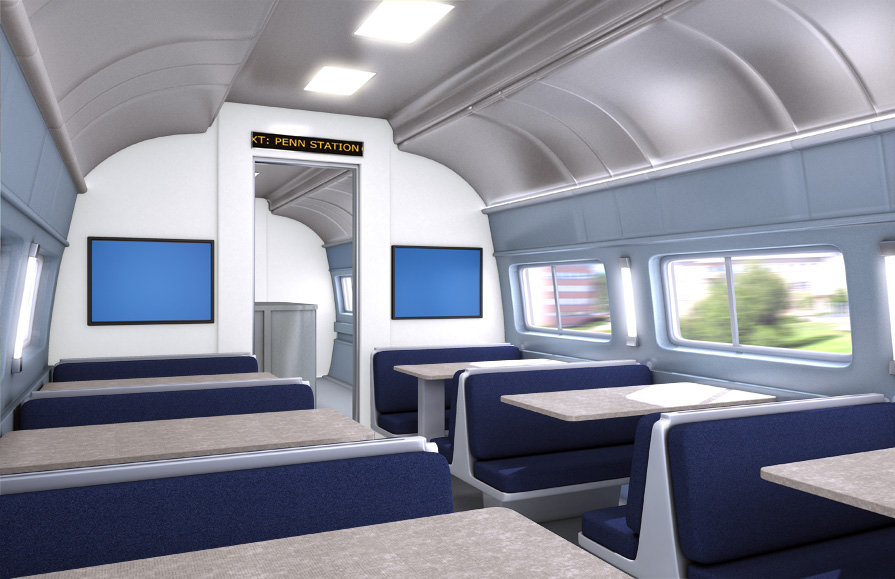
Fiber Reinforced Plastic Compounds in Railway Interiors
Railways around the world need smarter solutions, like rail pads that combine long-term endurance with a minimum of maintenance.
Trains are vital to economies around the world, and so is railway technology that can help keep them moving more reliably.
Plastic Alloy materials are helping rail pads and track systems withstand heavy loads and harsh conditions longer. SUGOI Enterprises engineers are collaborating with equipment-makers to help find smart solutions for local challenges.
Building in Reliability
The reliability of a rail system is only as good as the reliability of its tracks. So developing high-performance rail components is an industry-wide priority. One area of focus for SUGOI Polymers is the rail pad, the assembly that anchors the rail to the ties or rail bed.
Thermoplastic polyester elastomer is one material used, offering:
- Excellent flex fatigue and broad temperature use.
- Resistance to tearing, flex-cut growth, creep and abrasion.
- Outstanding strength and toughness.
- Superior durability vs. rubber.
